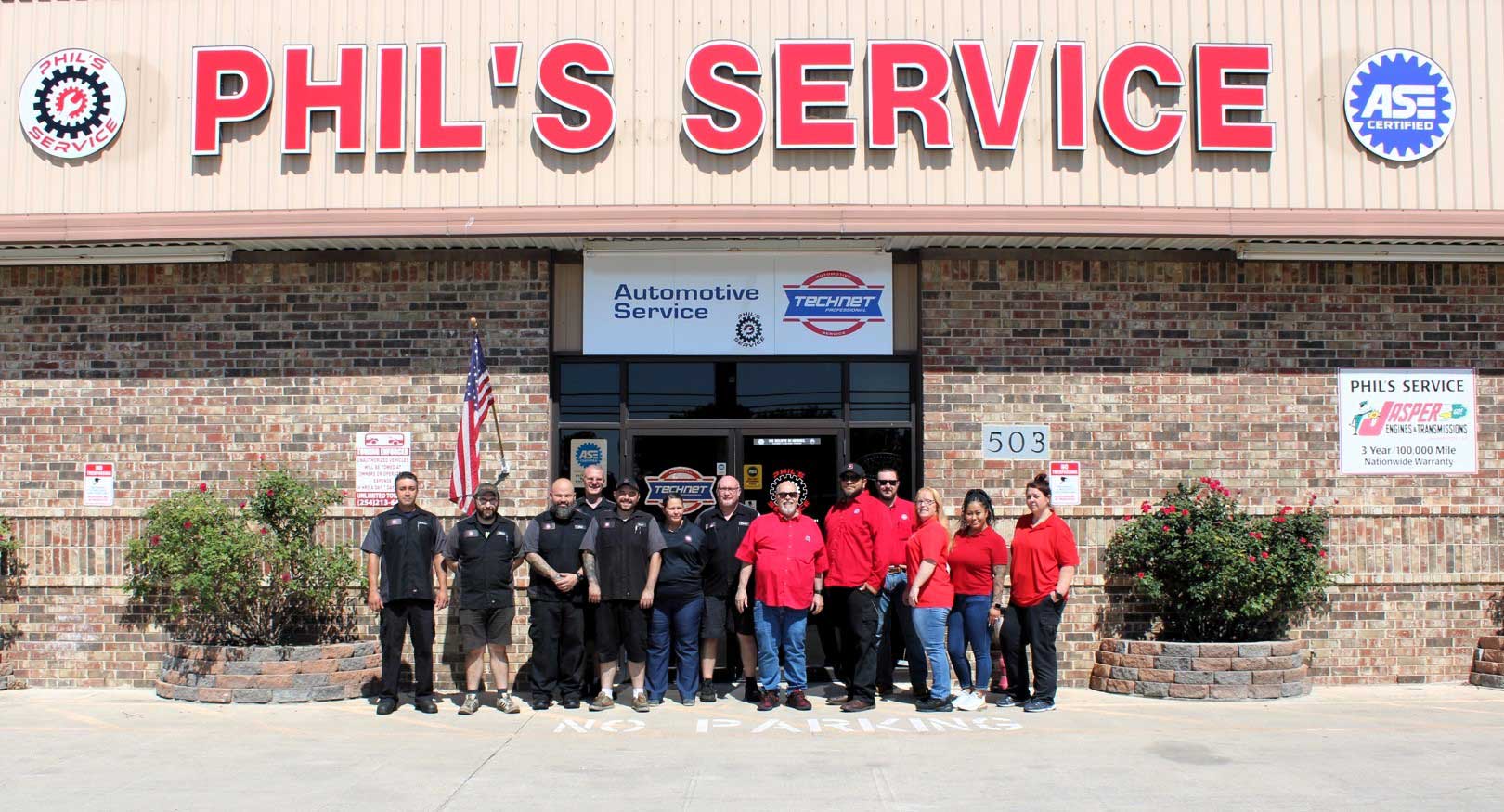Knowing when to change the oil in your car isn't always easy. Some say you should do it every 1,000 miles, while others say that once every 15,000 miles is enough.
Changing the oil in a car isn't the most difficult job, but it's not something you want to get wrong. It's crucial to understand that there are different car oil types, and it's vital that you use the right one. So you're probably wondering, "What kind of oil does my car take?".
In this engine oil guide, we'll take a look at the different types available and explain how to determine the right option for your car. Keep reading for more.
What Is Engine Oil?
The first thing to know is that there are several different types available. When looking for the best oil for cars, it can vary depending on the results you're after.
Synthetic
Synthetic oil is specifically designed to provide a high level of performance. It typically contains various synthetic materials such as esters and polyalphaolefins (POAs).
High-performance cars often use synthetic oils. It's also common in cars that require extended oil change intervals.
Mineral
Mineral engine oil is made using crude oil. It's entirely natural, rather than synthetic. As such, it's non-toxic and fully biodegradable.
Mineral oil doesn't offer the best performance, but it can help prolong the lifespan of your engine. It's also the cheapest and most common option, making it highly popular.
Semi-Synthetic
This is made using a blend of synthetic and mineral oils. It's typically quite affordable but still offers better performance than standard mineral oils.
This makes it a suitable choice for people who want the benefits of both. It's also worth noting that this is a good option for vehicles that are typically used for a lot of short trips or aren't driven very often.
Low SAPS
SAPS (sulfate ash, phosphorous, and sulfur) are additives found in some engine oils. They help protect the engine, but only when used in the right amounts. If the concentration is too high, they can do more harm than good.
Because of this, you're typically best looking for engine oils that are labeled as "low SAPS". There are several popular options currently on the market such as:
- Shell Rotella T6
- Pennzoil Ultra Platinum 5W-30
- Mobil 1 ESP Formula 5W-30
These options meet current standards for engine protection. They can help ensure your engine remains in a good state for longer.
High-Milage
If you're choosing car oil for a vehicle that has seen a lot of travel, this could be the best option. It's specifically designed for vehicles that have over 100,000 miles on their odometer.
Older engines tend to be more prone to wear and tear, but high-milage oil offers better protection from this. It's thicker than other oil types and contains additives that help to:
- Reduce leaks
- Reduce engine deposits
- Reduce oil consumption
It causes less friction than other oil types which also helps extend the lifespan of your engine. Note that there are various high-milage engine oil options, many of which are designed for specific vehicle makes and models.
It's vital that you select one that's right for your vehicle. Make sure you read the label so you don't get oil that's incompatible.
Another thing to bear in mind is that some high-mileage engine oils need to be changed more frequently than other types. Make sure you follow the manufacturer's instructions to stay on top of oil changes.
What Do the Numbers in Oil Grades Mean?
You'll see various numbers when looking at oil grades. Some of the most common include:
- 10W-30
- 5W-30
- 0W-20
10W-30 is a common choice that works well with a lot of vehicles. It's known for being ideal for use in cold and hot weather.
5W-30 is another type of oil that a lot of cars can use. It's thinner than 10W-30, which makes it more suitable in colder climates.
0W-20 is a very thin synthetic engine oil. It can work well in cold conditions but isn't suitable for use in hot weather.
Beyond these, there are many other grades available. If the numbers of engine oil come before a "W", it's designed for winter use. Those with numbers after a "W" are designed for use in the summer.
When the numbers of engine oil are on either side of a "W", it means it's multigrade oil. These are recommended car oils for use in seasonal temperatures.
Engine Oil Viscosity
Viscosity is a measure of a fluid's resistance to flow, and it's one of the most important factors when selecting an engine oil. Higher viscosity engine oil has a slower flow. Conversely, engine oil with lower viscosity flows more quickly.
Two numbers indicate the viscosity of engine oil. The first is its viscosity at low temperatures, while the second is its viscosity at a high temperature.
The lower the first number is, the better the oil will flow when it's cold. The higher the second number, the better it will flow when it's hot. You need to select the right viscosity of engine oil to ensure it flows at the right speed to properly lubricate your engine.
What Will Happen If You Use the Wrong Engine Oil?
Using the wrong type of engine oil or mixing different oils should always be avoided. Doing so can damage your engine. Make sure you always use the correct type, and only change it yourself if you're 100% confident in what you're doing.
If you want to avoid the risk of any issues and live in Killeen, Texas, mechanics with the right training could be the best bet. Phil's Service can change the oil in your vehicle to help you keep your engine in good shape.
What Kind of Oil Does My Car Take?
If you're wondering "What kind of oil does my car take?", you can check your handbook or contact the manufacturer. It can also be worth getting guidance from a professional mechanic as they might be able to advise you if you have any questions.
As the only ASE Blue Seal Certified repair shop in Killeen, Phil's Service provides professional automotive repair in Killeen, TX, so can easily perform oil changes. Request an appointment with us today for professional car repair in Killeen, Texas.
Are you wondering What kind of oil does my car take? Contact the auto specialists at Phil's Service to schedule an oil change service.
Knowing when to change the oil in your car isn't always easy. Some say you should do it every 1,000 miles, while others say that once every 15,000 miles is enough.
Changing the oil in a car isn't the most difficult job, but it's not something you want to get wrong. It's crucial to understand that there are different car oil types, and it's vital that you use the right one. So you're probably wondering, "What kind of oil does my car take?".
In this engine oil guide, we'll take a look at the different types available and explain how to determine the right option for your car. Keep reading for more.
What Is Engine Oil?
The first thing to know is that there are several different types available. When looking for the best oil for cars, it can vary depending on the results you're after.
Synthetic
Synthetic oil is specifically designed to provide a high level of performance. It typically contains various synthetic materials such as esters and polyalphaolefins (POAs).
High-performance cars often use synthetic oils. It's also common in cars that require extended oil change intervals.
Mineral
Mineral engine oil is made using crude oil. It's entirely natural, rather than synthetic. As such, it's non-toxic and fully biodegradable.
Mineral oil doesn't offer the best performance, but it can help prolong the lifespan of your engine. It's also the cheapest and most common option, making it highly popular.
Semi-Synthetic
This is made using a blend of synthetic and mineral oils. It's typically quite affordable but still offers better performance than standard mineral oils.
This makes it a suitable choice for people who want the benefits of both. It's also worth noting that this is a good option for vehicles that are typically used for a lot of short trips or aren't driven very often.
Low SAPS
SAPS (sulfate ash, phosphorous, and sulfur) are additives found in some engine oils. They help protect the engine, but only when used in the right amounts. If the concentration is too high, they can do more harm than good.
Because of this, you're typically best looking for engine oils that are labeled as "low SAPS". There are several popular options currently on the market such as:
- Shell Rotella T6
- Pennzoil Ultra Platinum 5W-30
- Mobil 1 ESP Formula 5W-30
These options meet current standards for engine protection. They can help ensure your engine remains in a good state for longer.
High-Milage
If you're choosing car oil for a vehicle that has seen a lot of travel, this could be the best option. It's specifically designed for vehicles that have over 100,000 miles on their odometer.
Older engines tend to be more prone to wear and tear, but high-milage oil offers better protection from this. It's thicker than other oil types and contains additives that help to:
- Reduce leaks
- Reduce engine deposits
- Reduce oil consumption
It causes less friction than other oil types which also helps extend the lifespan of your engine. Note that there are various high-milage engine oil options, many of which are designed for specific vehicle makes and models.
It's vital that you select one that's right for your vehicle. Make sure you read the label so you don't get oil that's incompatible.
Another thing to bear in mind is that some high-mileage engine oils need to be changed more frequently than other types. Make sure you follow the manufacturer's instructions to stay on top of oil changes.
What Do the Numbers in Oil Grades Mean?
You'll see various numbers when looking at oil grades. Some of the most common include:
- 10W-30
- 5W-30
- 0W-20
10W-30 is a common choice that works well with a lot of vehicles. It's known for being ideal for use in cold and hot weather.
5W-30 is another type of oil that a lot of cars can use. It's thinner than 10W-30, which makes it more suitable in colder climates.
0W-20 is a very thin synthetic engine oil. It can work well in cold conditions but isn't suitable for use in hot weather.
Beyond these, there are many other grades available. If the numbers of engine oil come before a "W", it's designed for winter use. Those with numbers after a "W" are designed for use in the summer.
When the numbers of engine oil are on either side of a "W", it means it's multigrade oil. These are recommended car oils for use in seasonal temperatures.
Engine Oil Viscosity
Viscosity is a measure of a fluid's resistance to flow, and it's one of the most important factors when selecting an engine oil. Higher viscosity engine oil has a slower flow. Conversely, engine oil with lower viscosity flows more quickly.
Two numbers indicate the viscosity of engine oil. The first is its viscosity at low temperatures, while the second is its viscosity at a high temperature.
The lower the first number is, the better the oil will flow when it's cold. The higher the second number, the better it will flow when it's hot. You need to select the right viscosity of engine oil to ensure it flows at the right speed to properly lubricate your engine.
What Will Happen If You Use the Wrong Engine Oil?
Using the wrong type of engine oil or mixing different oils should always be avoided. Doing so can damage your engine. Make sure you always use the correct type, and only change it yourself if you're 100% confident in what you're doing.
If you want to avoid the risk of any issues and live in Killeen, Texas, mechanics with the right training could be the best bet. Phil's Service can change the oil in your vehicle to help you keep your engine in good shape.
What Kind of Oil Does My Car Take?
If you're wondering "What kind of oil does my car take?", you can check your handbook or contact the manufacturer. It can also be worth getting guidance from a professional mechanic as they might be able to advise you if you have any questions.
As the only ASE Blue Seal Certified repair shop in Killeen, Phil's Service provides professional automotive repair in Killeen, TX, so can easily perform oil changes. Request an appointment with us today for professional car repair in Killeen, Texas.


